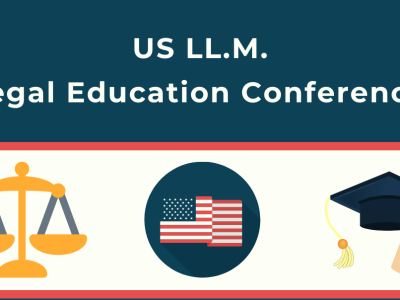As you embark on an LL.M. program, one of the most critical decisions you’ll make is selecting the right elective courses. These are the key to tailoring your LL.M. experience, ensuring it aligns with your career goals and intellectual interests.
While the core curriculum of an LL.M. program provides a solid foundation in the law, it’s the elective courses that allow you to carve a unique academic path. Whether your aspirations lead you toward international law, intellectual property, environmental regulations, or human rights advocacy, your choice of LL.M. electives can shape your legal career and open doors to exciting opportunities.
But with a vast array of subjects and specialties to choose from, it’s easy to feel overwhelmed by the choices before you. How do you pick the electives that align with your career aspirations, strengths and interests?
Karen Jones, University of Houston Law Center’s Executive Director of Global and Graduate Programs, says electives are essential because they allow LL.M. students to take classes in a specific area of law that interests them, or can help focus their legal practice and meet professional goals.
“Choosing the right electives can help position students to achieve their desired legal career path,” she says. “For example, if a student is taking the LL.M. program to help shift from one area of legal practice to another, the elective courses chosen can help them gain important knowledge and expertise that provides a good foundation for credibility amongst their peers.”
How electives facilitate legal career changes
Even if the named degree is a different concentration, she says elective courses can prove beneficial when talking with a firm about shifting to another area or interviewing to show a broader area of legal knowledge and exposure.
Houston Law has a broad list of course offerings. But Jones says prospective students should look beyond what is offered in their LL.M. program of interest. “Often, courses from other programs can be beneficial to them in their chosen concentration,” she explains. “For example, a Health Law LL.M. student might benefit from taking an intellectual property course, or an International Law LL.M. student might benefit from a transactions course, depending on their interest.”
Some are more popular than others. Jones says courses such as immigration law, federal income tax, business transactions, cyber security, and space law, are gaining in popularity. Additionally, dispute resolution courses, especially in negotiation, are also quite popular at Houston Law.
Students should strive to use their time in an LL.M. program to test the waters, adds Jones. “Electives allow students the opportunity to try out areas of law and interests. So long as students are satisfying their program requirements, they should take full advantage of electives as a way to sample various areas of interest -- while also broadening their legal scope.”
Electives: explore and innovate
At Georgetown Law, LL.M. students are free to select from more than 500 courses. “Having the opportunity to select which course to take, allows our students to earn a degree tailored and designed to meet their own needs,” says Andrea Rodriguez Escobedo, Director of International Programs.
“Having the opportunity to select from a variety of electives allows students to explore different or innovative areas of law, improve their legal skills, or specialize further,” she adds. “We work closely and advise our students to help them identify which courses will help them meet their desired goals.”
Before selecting any course, Georgetown Law strongly advise students to reflect on the main goals they want to achieve while pursuing an LL.M. “Having clarity on these goals will help them make sure to select the right course once registration opens,” Rodriguez Escobedo says. “The goals of every student can be different, and we guide them throughout the way -- whether that’s becoming eligible to take a bar exam in the U.S, or improving their legal writing skills.”
By carefully aligning your choices with your career aspirations, strengths, and interests, you unlock the potential to transform your LL.M. journey into a personalized and powerful foundation for a thriving legal career.










